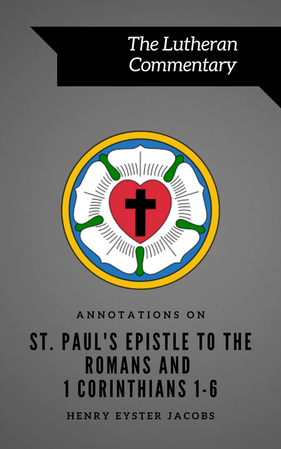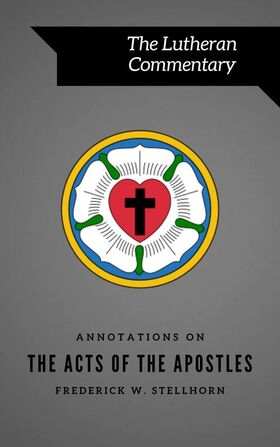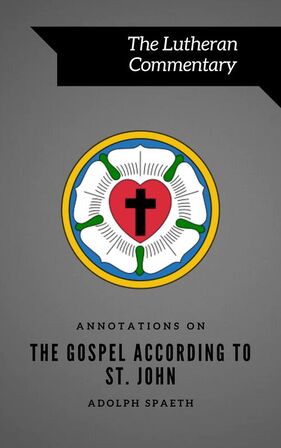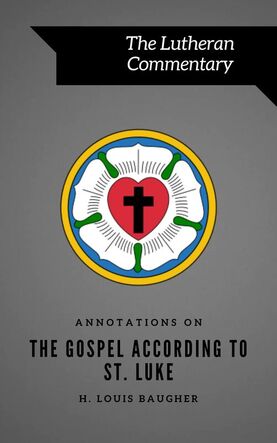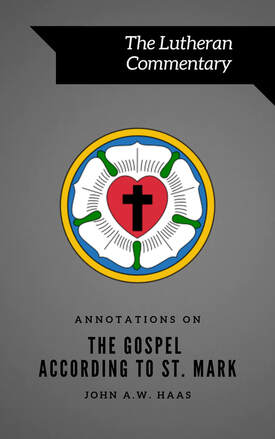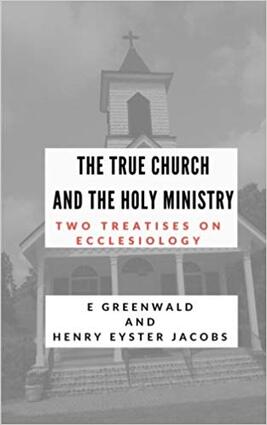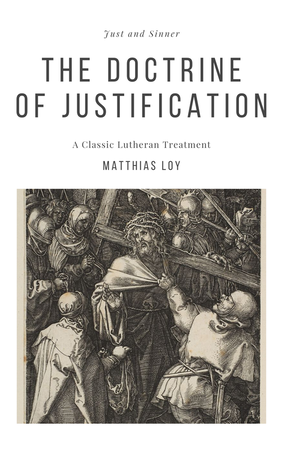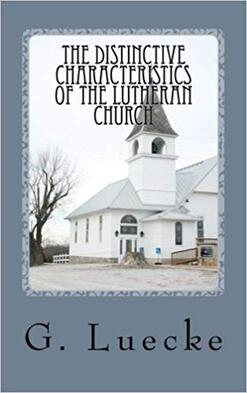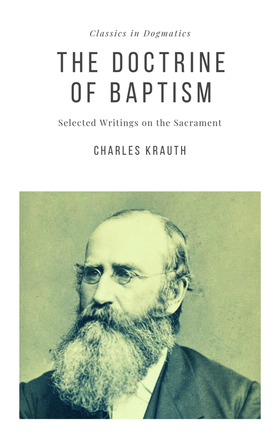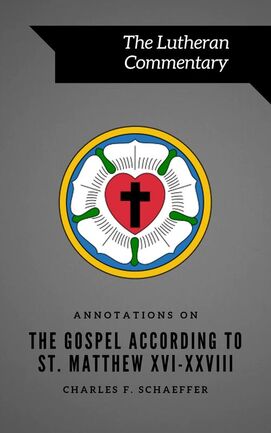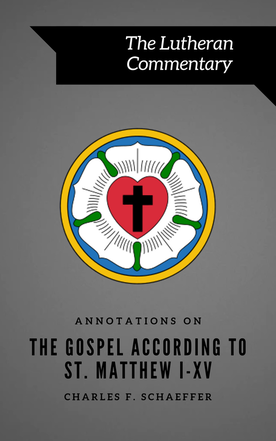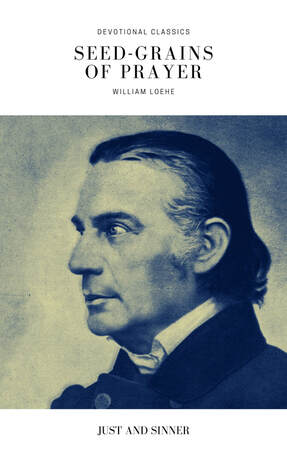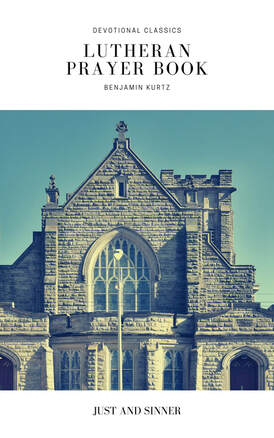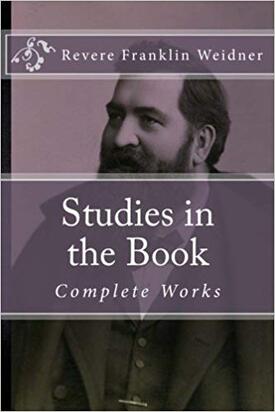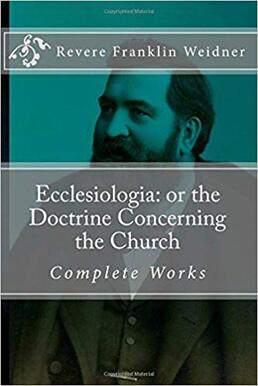| The Lutheran Commentary Series is the first series of Lutheran commentaries written in English. These volumes were compiled by Henry Eyster Jacobs, who called upon the greatest Lutheran exegetes in America to write a series of commentaries on the New Testament. The first commentary was published in 1895, and the publications continues through the early twentieth century. These volumes cover the entirety of the New Testament.The volumes in this series are unabashedly Lutheran. Each author holds to a firm commitment to the Lutheran distinctives as outlined in the Book of Concord. Yet, the method of treatment is not that of imposing preexisting theological categories on the New Testament text. Rather, these are careful works of studied exegesis. Though over one hundred years old, these volumes continue to be a valuable resource to the church, both pastors and laity, in explaining God's Word from a Lutheran perspective. This volume covers the book of Romans and the first six chapters of 1 Corinthians. Print: $18.00 Kindle: $9.00 |
Annotations on St. Paul's Epistle to the Romans and 1 Corinthians 1-6 (Lutheran Commentary Series)12/7/2019
1 Comment
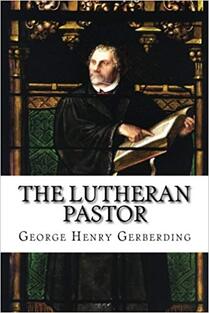 George Henry Gerberding's "The Lutheran Pastor," is an extensive treatment of pastoral theology from a Lutheran perspective. This work is both theological and practical, as he expounds upon various aspects of pastoral life and ministry. He begins by a discussion of the call, outlining various approaches to the call within Lutheranism. He then discusses the personal life of the pastor, the role of the pastor in the worship service, and private visitations. Though a century old, this work is an extremely beneficial and practical volume for anyone in, or considering, a pastoral role in the Lutheran church. Print: $15.00 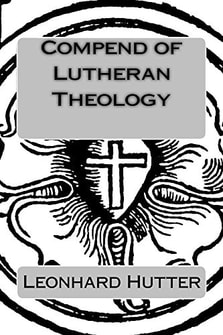 Leonhard Hutter's Compend of Lutheran Theology was a standard theological textbook for many years following the Reformation. This volume is a short and comprehensive treatment of Lutheran theology. It is written in a question and answer format, and is an especially helpful work for catechesis. Hutter writes within the scholastic tradition, yet this work is very accessible. He heavily utilizes selections from the Lutheran Confessions, Scripture, and the writings of Luther and Melanchthon. This edition was translated by Henry Eyster Jacobs for use in Lutheran education in America in the nineteenth century. Leonhard Hutter (1563-1616) was a professor of theology at the University of Wittenberg, and was an early proponent of Lutheran orthodoxy. Print: $14.00 Kindle: $8.99 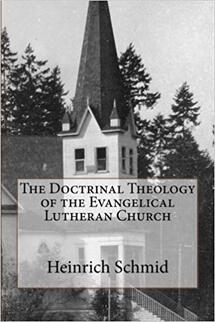 In the contemporary Lutheran church, our rich dogmatic heritage is often forgotten. We tend to privilege Luther and other early reformers over the later tradition that developed through his reforms. The church would benefit from a thorough read of those within the seventeenth century scholastic tradition, along with the reformers, who systematized and expounded upon Luther's ideas. Heinrich Schmid's The Doctrinal Theology of the Evangelical Lutheran Church is a concise summary of the developments of the seventeenth century scholastic theologians in the Lutheran tradition. Schmid compiles citations from the best of that tradition, including Gerhard, Chemnitz, Calov, and Quenstedt. Schmid also includes several historical notes, demonstrating how each particular doctrine has developed in the history of Lutheran theology. This book is an essential read for anyone who desires to understand the Lutheran theological tradition Print: $24.00 The Doctrine of Baptism: Selected Writings on the Sacrament by Charles Krauth (Studies in Dogmatics)10/2/2019
Annotations on the Gospel According to St. Matthew VXI-XXVIII (Lutheran Commentary Series)10/2/2019
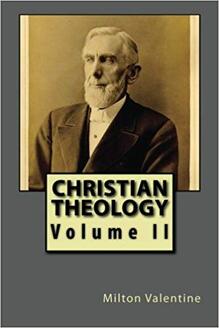 Milton Valentine (1825-1906) was the most prominent theologian of the General Synod after the death of Samuel Schmucker. Unlike Schmucker, Valentine was committed to the unaltered Augsburg Confession, and argues for Lutheran unity in America based on a quia subscription to the Augustana. Unity was impossible however, between the General Synod and the General Council due to the remaining liberalism amongst many clergy and theologians in the General Synod. Though committed to the Augustana and the historic Lutheran tradition as he understood it, Valentine was still largely influenced by the protestantizing tendencies of his own church body. This should not, however, serve as grounds for dismissing Valentine as a theologian. He was a highly original and intelligent theologian, producing the best theological textbooks to arise from the General Synod. Valentine's treatment of the order of salvation and the work of Christ are especially beneficial. When speaking of the sacraments, however, Valentine is influenced by Reformed thinking. This is the second volume of Valentine's Systematic Theology that served as a textbook for many years at Gettysburg Seminary where Valentine served as president. This second volume covers soteriology, the sacraments, ecclesiology, and eschatology. Print: $13.30 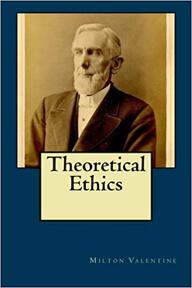 "It is refreshing to find a treatment of he psychology of the moral agent, the being we know as man, without beginning with the oyster or the earthworm, and being left as last in doubt whether the human soul differs in kind or degree from the insignificant embodiment of nervous susceptibility with which we began. Dr. Valentine takes man as he finds him, endowed with rational intellect, sensibility, and free will, and leaves the evolutionary biologist to amuse himself with the problem how he came to be what he is. What he is, is all that essentially concerns the ethical philosopher." -Bibliotheca Sacra Print: $13.30 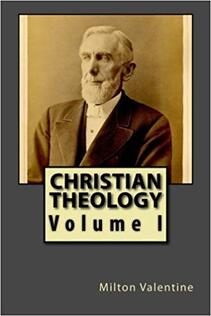 Though committed to the Augustana and the historic Lutheran tradition as he understood it, Valentine was still largely influenced by the protestantizing tendency of his own church body. This should not, however, serve as grounds for dismissing Valentine as a theologian. He was a highly original and intelligent theologian, producing the best theological textbooks to arise from the General Synod. Valentine's treatment of the doctrine of God, apologetics, and Holy Scripture are especially beneficial. When speak of conversion and election, however, Valentine tends more in the Arminian than historic Lutheran direction. This is the first volume of Valentine's Systematic Theology that served as a textbook for many years at Gettysburg Seminary where Valentine served as president. This first volume covers prolegomena, the doctrine of God, and the doctrine of man. Print: $14.25 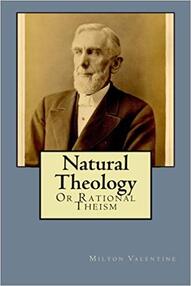 This is Valentines major apologetic work. In this book, Valentine defends a robust natural theology, arguing that Theism is the only rational worldview in contradistinction to the materialistic rationalism which pervaded the nineteenth century. Valentine stands within the nineteenth century apologetic tradition among the likes of B.B. Warfield an Charles Hodge. Though some of the science of this book is dated, this work still stands as a convincing rational defense of the Christian faith. Print: $14.00
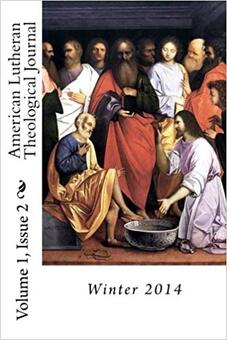 Articles:
Calling All Sinners (Matthew 9:9-13) By Curtis Leins Print: $6.00 Kindle: $5.99 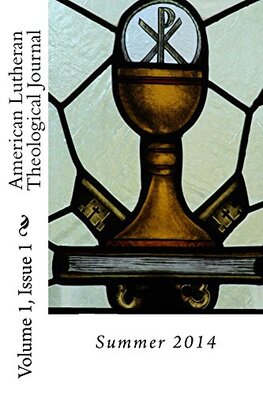 Volume 1, Issue 1 of The American Lutheran Theological Journal from Summer of 2014. Contents include: The Eucharistic Sacrifice in Early Lutheranism by Jordan Cooper Communion Conflict: The Disagreement Between the ALC and LCA during the formation of the Lutheran Book of Worship by Curtis E. Leins Foundations for Bible Study by Richard P. Shields Book Reviews Sermon from Pastor David Spotts Print: $6.00 Kindle: $5.99
Ecclesiologia: Or the Doctrine Concerning the Church by Revere Franklin Weidner (Complete Works)9/20/2019
|
Categories
All
|

